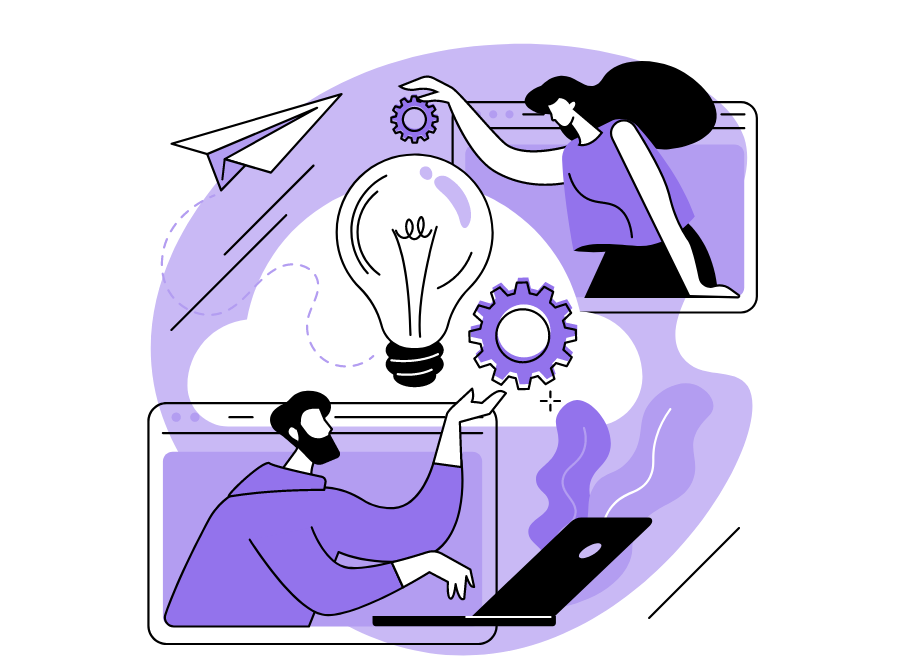
Programming skills aren’t the be-all and end-all of software development, no matter how counterintuitive this may sound.
When you’re hiring a software developer, the depth and breadth of their technical knowledge certainly is a crucial factor, but it’s not the only one.
Soft skills are more and more essential in today’s tech industry. Developers work in teams, communicate with management, and deal with clients—that’s where their soft skills can shine.
What soft skills should you look for when hiring a developer? That’s what we’ll explore in this article, so keep reading!
Table of Contents
Good communication skills
Communication skills are non-negotiable for developers.
Working on problems with other developers, exchanging ideas, and presenting features to clients are just a few everyday activities where effective communication is fundamental.
As Camille Fournier puts it, without communication, you can forget productivity.
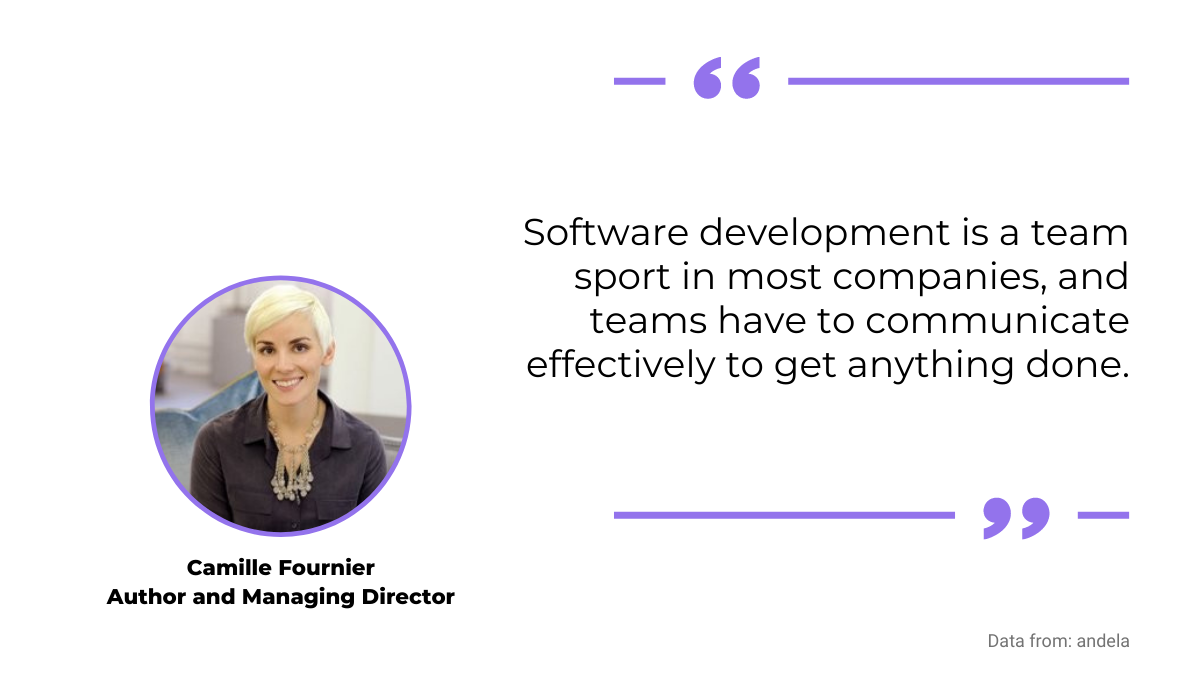
Also, communication is an important factor in the efficiency of your team.
According to data presented on Teamstage, well-informed employees vastly outperform their peers who aren’t that strong in communicating.
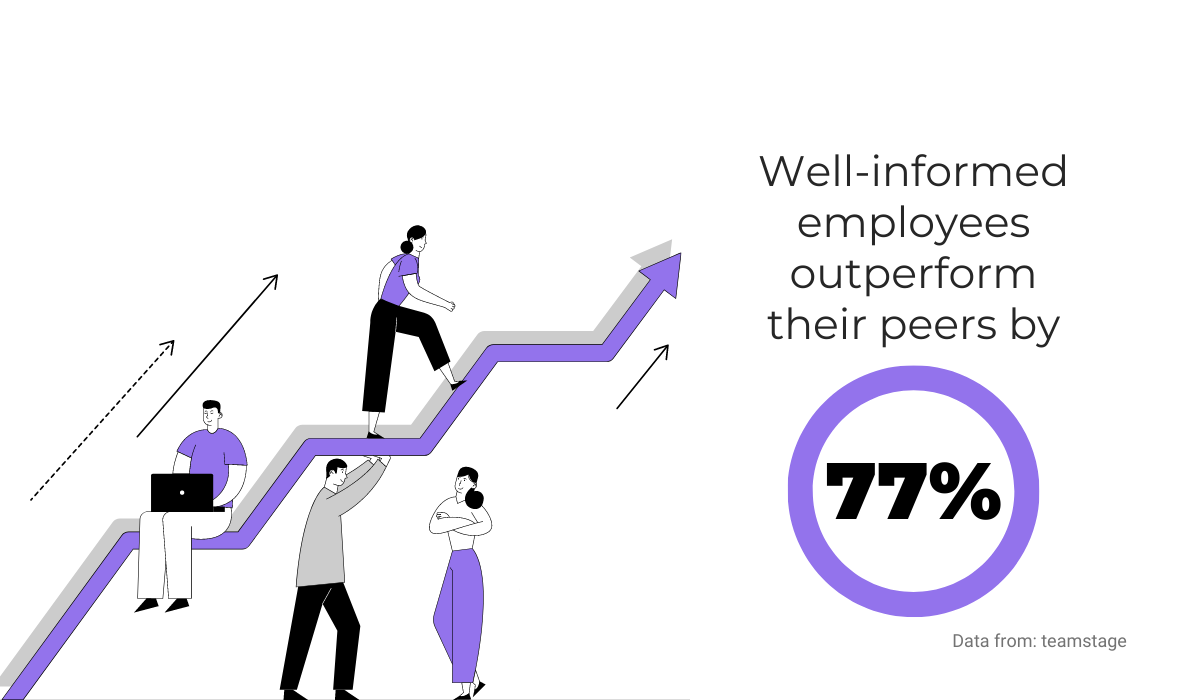
Luckily, when hiring developers, it’s relatively easy to assess someone’s communication skills; they are usually apparent in the job interview.
However, you can also do a lot to facilitate good communication practices in your team and improve your developers’ communication skills.

Get unreal data to fix real issues in your app & web.
That’s what Amazon does. As Kristin Graham, former Principal in Culture and Communications at Amazon Web Services, described, the company ensures a safe space for their new developers to communicate.
They pair up a new developer with a more experienced colleague, but they also encourage new hires to connect and communicate with others in order to “have vulnerable conversations”, as she puts it.
You can listen to Graham describe Amazon’s practices in the video below.
Another important communication skill for developers is to be precise and relevant in their communication.
At Amazon, they encourage developers to communicate in bite-sized pieces of information. According to Graham, half of the people stop reading after 111 words, so developers need to get to the point quickly.
She recommends PechaKucha presentations which show 20 images, each for 20 seconds—that’s 400 seconds to communicate.

For example, you can watch a presentation about the importance of empathy, a soft skill that we’ll examine in one of the later sections.
If you have an image in your mind of a developer working in isolation, writing code, and not communicating, forget about it.
Communication skills are part of their job; assessing them and providing opportunities to improve them should be among the priorities.
Ability to collaborate with others
The importance of collaboration is hard to overstate. The success of a whole software development team can depend on it.
The ability to collaborate essentially boils down to being a good team player.
It’s a soft skill that allows developers to work toward a common goal, take and give advice, and respect other team members—in short, to be a piece of the puzzle that fits perfectly.
When you’re hiring a developer, their previous experiences can tell you a lot about their ability to collaborate.
In addition to experiences of working in a team, some practices like participating in hackathons and pair programming can indicate a high level of collaboration ability.
For example, hackathon events require developers to work in a team and make a working product in a limited amount of time.
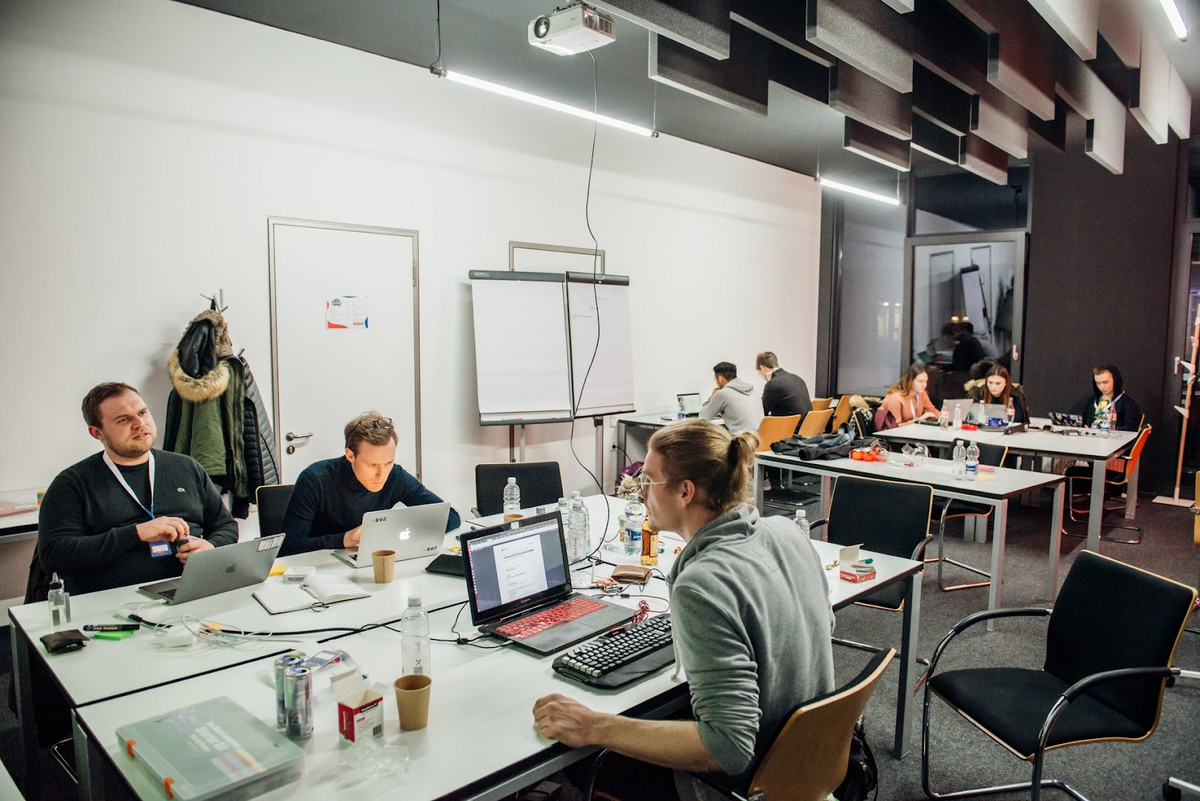
Above, you can see a piece of the atmosphere from the Hackergy Battleweeks, a four-week innovation competition.
In that hackathon, developers from the energy sector collaborate on various innovations in teams of four to six members.
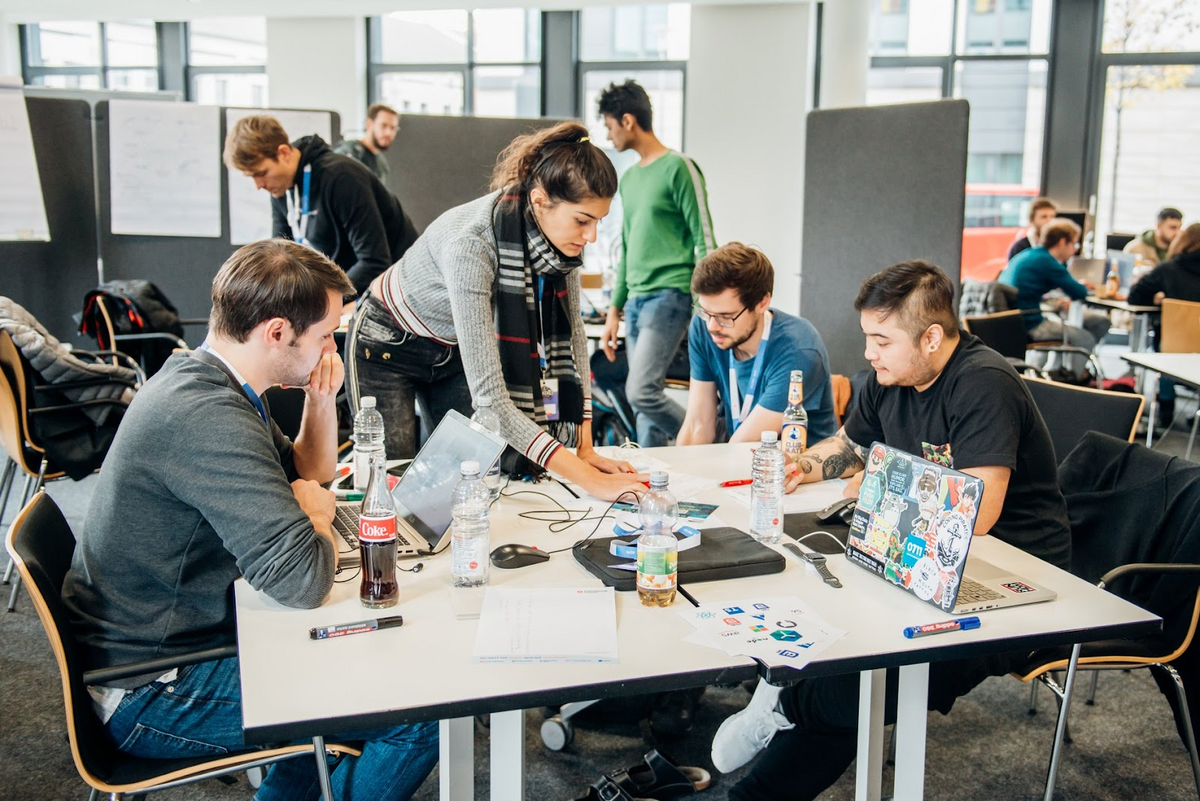
Looking for an experience like that when hiring your developers can be beneficial; it’s a good sign that they know how to be productive in a team.
Another practice that encourages collaboration is pair programming. If you practice it in your teams, you probably know the benefits it can bring.
Lukasz Fiedoruk, a software developer at Grape Up, has a great experience with pair programming in that company.
As he describes, it took some time to get used to, but the results and the amount of new knowledge were substantial.
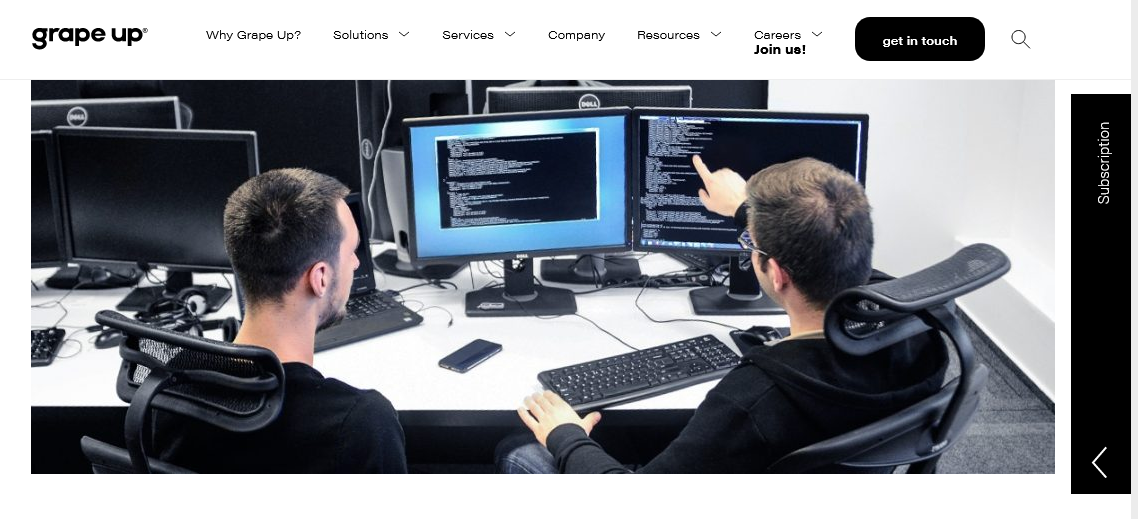
Direct collaboration with a teammate resulted in fewer mistakes in code, better outcomes, and, last but not least, more comfort in working with another developer.
To build a great team, you need great team players. The ability to collaborate is an essential soft skill, and it can make a real difference for every one of your employees.
Emotional intelligence
Developers with high emotional intelligence tend to be calm under pressure, empathetic toward one another, and know how to react to their environment appropriately.
Emotional intelligence is a term that has been around for quite some time, but Daniel Goleman popularized it in 1995.
He describes it as a person’s ability to manage their feelings and express them appropriately and effectively.
So, why should you look for emotional intelligence when hiring developers? According to Goleman, it’s the most significant predictor of success in the workplace.
And it seems like employers value it as such; research by Career Builder shows that 75% of them value it more in candidates than a high IQ.
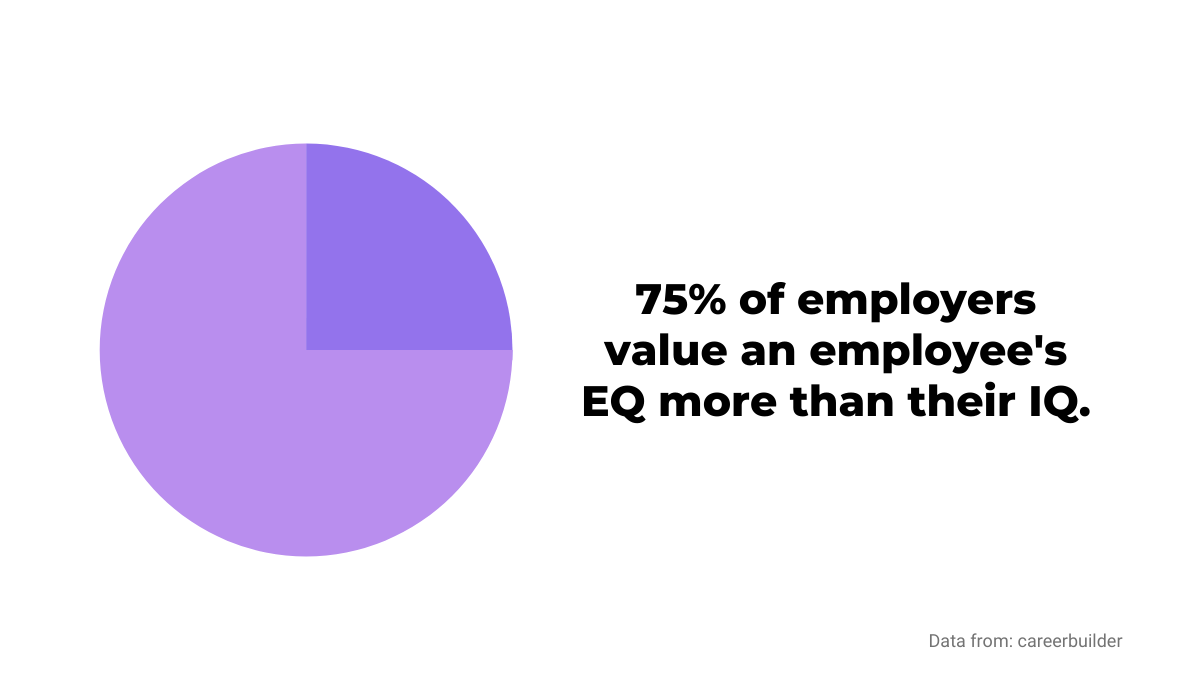
An emotionally intelligent person can bring a lot to the team. For example, let’s look at the way Dara Khosrowshahi influenced Uber.
He became the CEO of that company in 2017 and immediately stood out with his emotional intelligence.
As Jessica Bryndza, Uber’s former global director of people experiences and employer brand, explained, he came in listening.
He’s an empathetic leader who is composed and measured.
That approach enabled him to seal billion-dollar deals, have roundtable discussions with unhappy drivers, and listen to representatives of staff-run clubs which represent people from different backgrounds.
He continues to navigate high-pressure situations, like the stock fall in May of 2022.
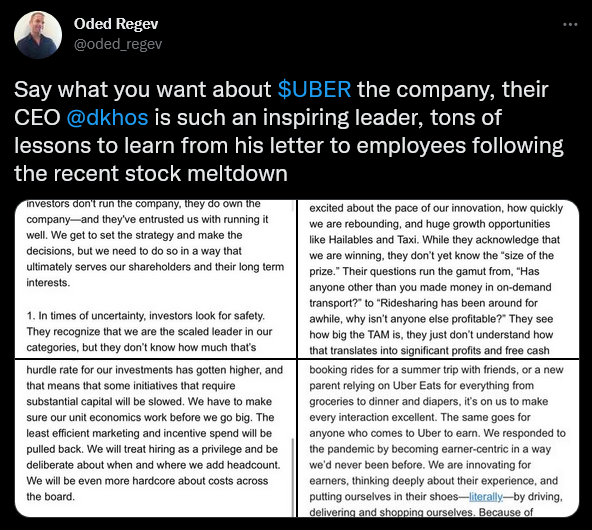
Those are all situations that require clear thinking and taking the emotions of others into account—a person with high emotional intelligence can overcome those challenges successfully.
You can see Khosrowshahi below, on the left, with another well-known empathetic leader, Satya Nadella of Microsoft.
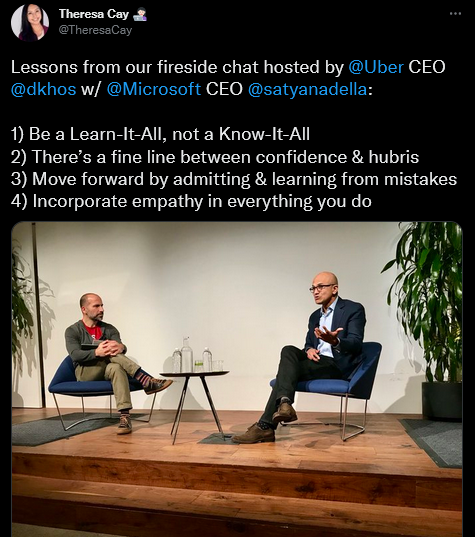
As one of the lessons in the above tweet says, it’s important to incorporate empathy in our activities.
That concerns developers, too. If you hire a developer who knows how to interpret the emotions of others, you’ll have someone your team can rely on.
Because there’ll be tight deadlines and tense situations. That’s the nature of the tech business. Someone with high emotional intelligence knows how to handle that when it comes.
Flexibility
Software development is a dynamic, sometimes turbulent business prone to change. If you want to have a successful team of developers, you should look for those who embody that trait.
A developer should be able to adapt to different circumstances and roll with the punches.
It would be best if you looked for signs of flexibility while hiring.
As Alex Ross explains, flexibility is a certain attitude that starts with an open mind and the ability to find quick solutions to the problem.
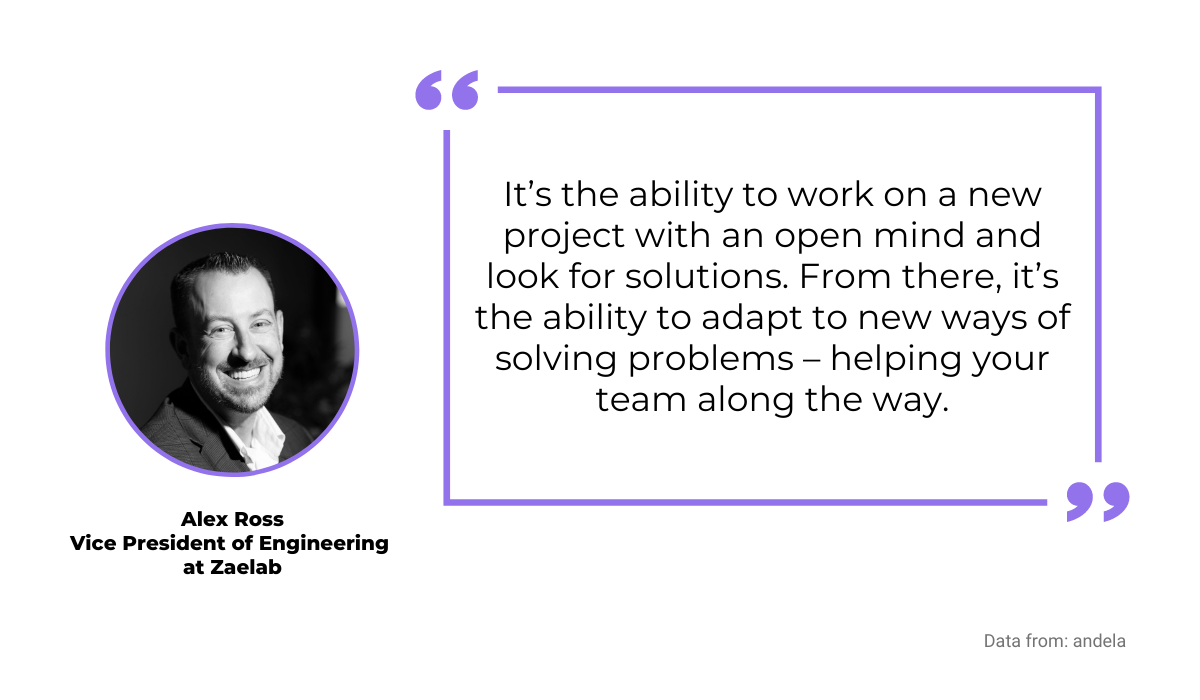
One good tell of developers’ flexibility is their preference for learning and education.
A flexible developer knows that their abilities need to be constantly upgraded.
Most of them are aware of that; according to a 2020 Stack Overflow survey, nearly 75% of developers learn a new programming language or framework at least once a year.

If a developer you want to hire has a resume full of completed courses which show their dedication to continuous education, that’s a good sign of their flexibility.
For example, take a look at the resume of one of the top developers on Upwork.
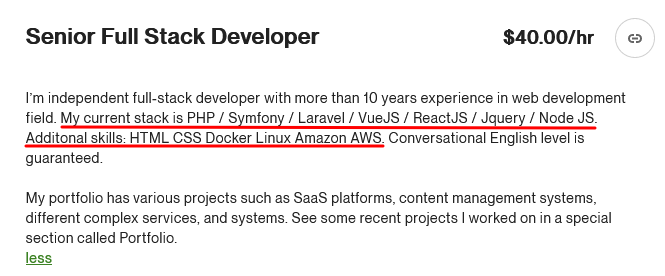
Their flexibility is clear if you look just at Symfony and Laravel, which they listed as parts of their current stack—those are very popular PHP frameworks that weren’t as common, for instance, five years ago.
Having flexible developers could be crucial for the success of your business. It creates a mindset of the whole team that can produce great results—just look at Netflix.
The streaming giant is famous for its flexibility and adaptability. From sending physical copies of movies to their customers, they shifted to streaming.
Later, they adapted to the market and started to produce their own content. And the latest change came recently with their venture into gaming.
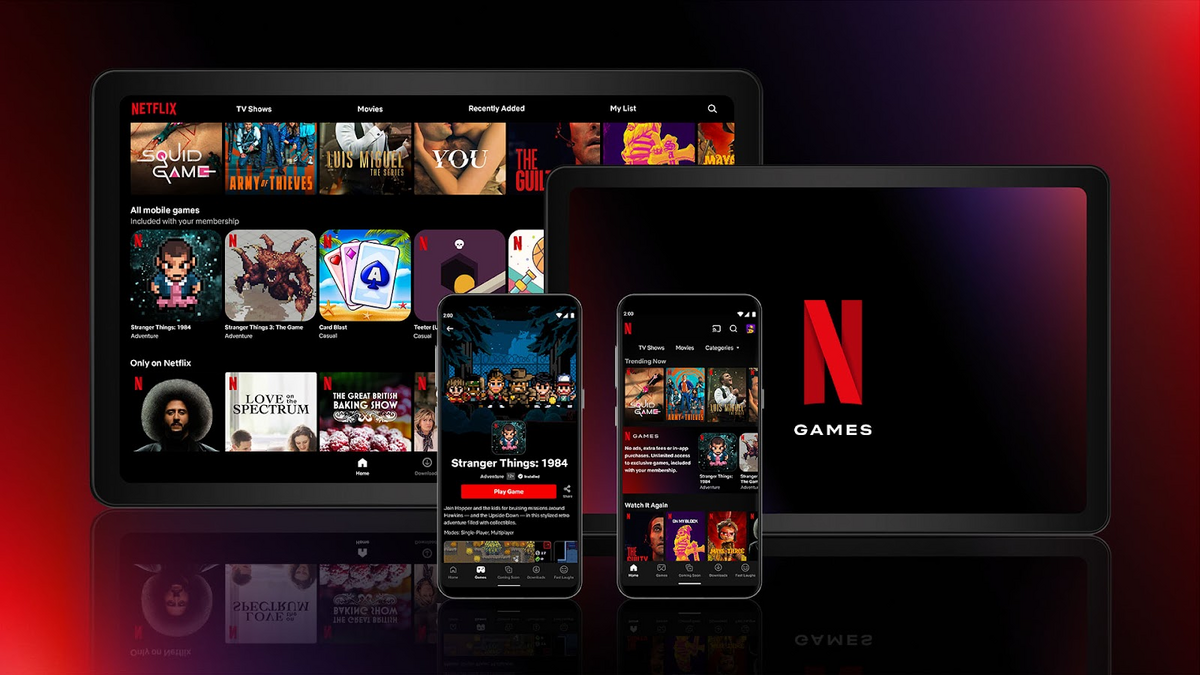
Although their moves were often met with doubt, their flexibility helped them become industry leaders—just ask Blockbuster.
Having flexible developers can do that for your organization.
The ability to change and adapt is a valuable soft skill, so be sure to look for it when you assemble your winning software development team.
Patience
Working in a team requires patience. Not everybody works at the same pace, and the more moving parts you have in your group, the more patience is beneficial as a soft skill.
There’s no way around it—a software developer will almost always deal with multiple people during a project, and they should know how to treat the situation appropriately.
As one Quora user points out, dealing with different personalities requires patience.

You can assess a developer’s patience by their experience.
For example, if they worked successfully in large teams and on big projects, it’s most likely that they had to exercise patience.
That especially stands if they worked within the DevOps model.
As you probably know, DevOps merges development and operations teams so that the organization can produce and deliver the product faster.
As you can see in the process visualization below, both teams are firmly connected in collaboration.
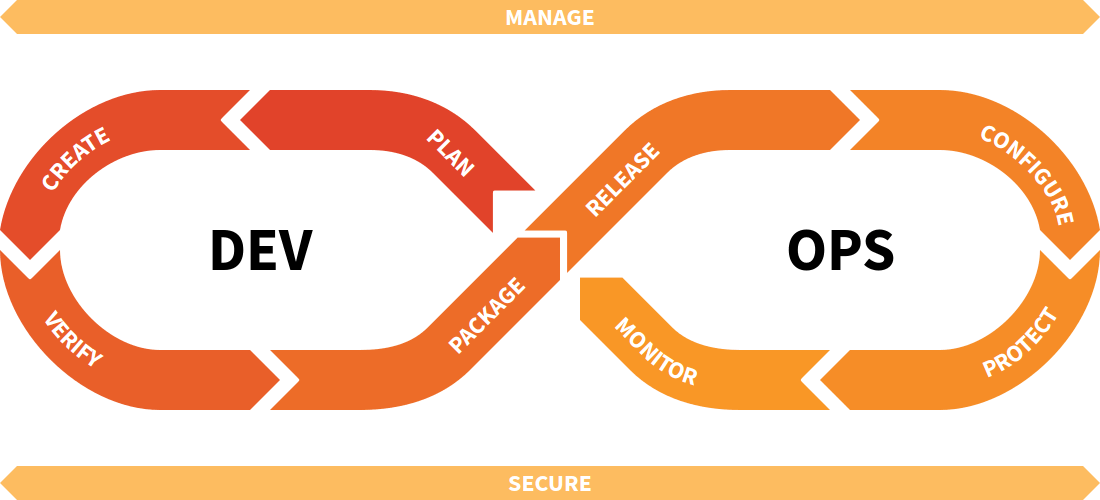
If a developer has experience with DevOps, they have worked not only with their fellow developers but also with, for example, managers or system operators.
With a versatile team like that, patience is a virtue; the differences between personalities, working habits, and understanding of the project are even more pronounced.
Another good indicator of a patient developer is experience in mentoring others.
Passing knowledge to another developer and introducing them to various facets of work culture takes patience.
As Andrew Sharpe from Quora suggests, it’s a great way to develop that soft skill.

As you can see from his post, patience implies a certain level of empathy.
That’s also one of the three components of patience, according to Tapas Adhikary from GreenRoots blog.
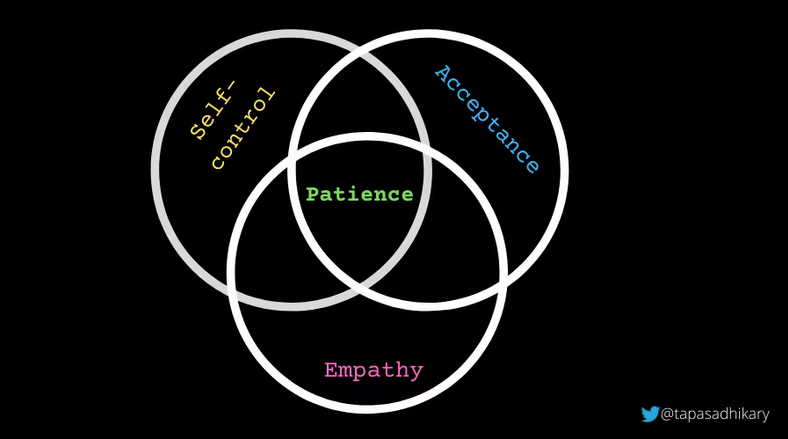
Empathy, which we talked about in one of the earlier sections, contributes to patience along with self-control of our reactions and acceptance of the fact that sometimes we just have to wait.
Therefore, hiring someone with experience in mentorship or working in the DevOps model is wise if you want a patient person.
Of course, you can further improve that soft skill in your developers by using those practices in your organization; that could be a significant factor in their success.
Critical thinking
Critical thinking is one of the developers’ soft skills that can bring tremendous value to your software development team.
That’s a complex skill that is made of various other skills like an ability to analyze the issue, use logic, and solve problems.
Chris Lofton, CEO at Zollege, gives a sound definition of critical thinking as an ability to make good decisions based on available information.
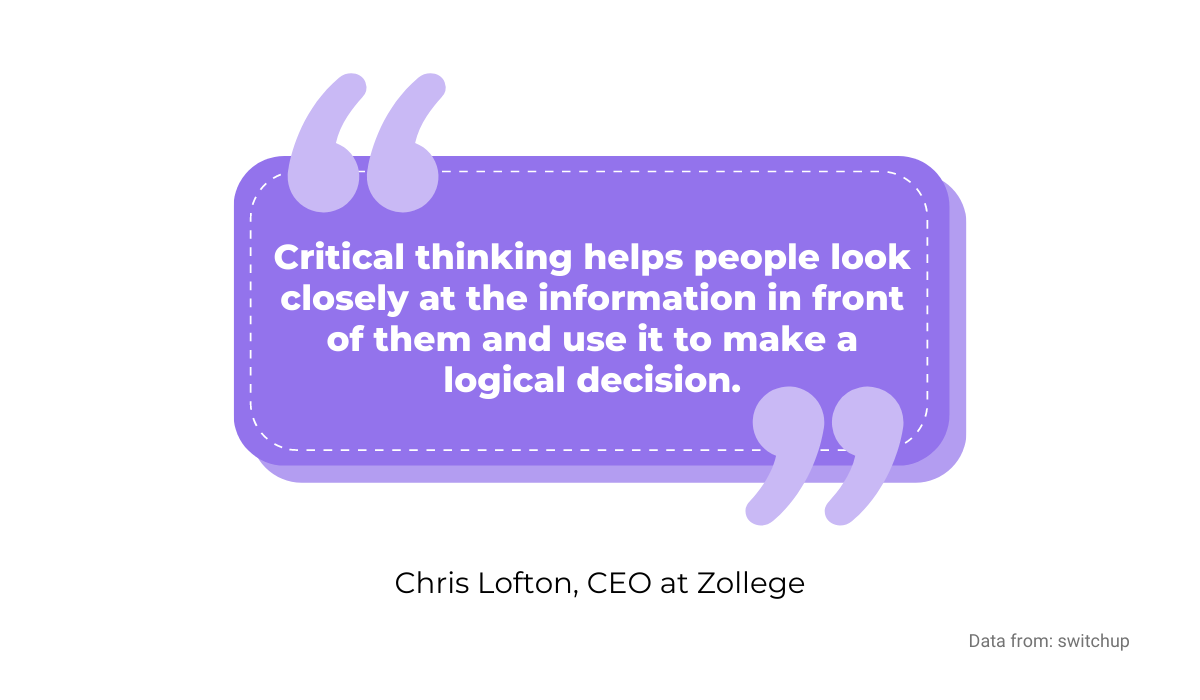
However, problem-solving isn’t always that straightforward; developers’ aren’t machines that can take information and calculate the most logical course of action.
You could argue that critical thinking also includes creative thinking.
To fix complex problems, sometimes developers need to think outside the box and devise a solution that isn’t immediately obvious.
You can present them with such problems during the hiring process to assess how they approach them.
For instance, if they have the following thinking process, it’s a good indication of a developed critical thinking skill:
- Identify the problem
- Analyze the problem from several perspectives
- Develop a few possible solutions
- Decide which solution is the best fit
- Take action
With a structured process like that, problem-solving is easier.
Another interesting technique of problem-solving is rubber ducking.
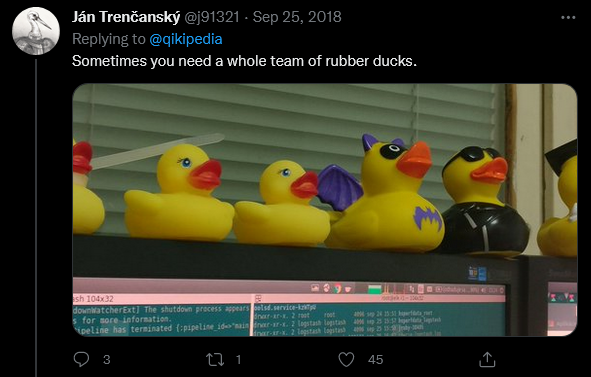
The idea is simple: when you encounter a problem, try explaining it to a rubber duck—or simply to a non-expert.
The theory is if you talk about the issue out loud in simplified language, the solution can often come to you.
Whether the developer uses this particular method or something else isn’t that crucial.
The important part is that they have structures and techniques for thinking about problems and solving them.
It’s not surprising that employers highly value such a complex soft skill. According to a HackerRank report, problem-solving is the most important skill by a large margin.
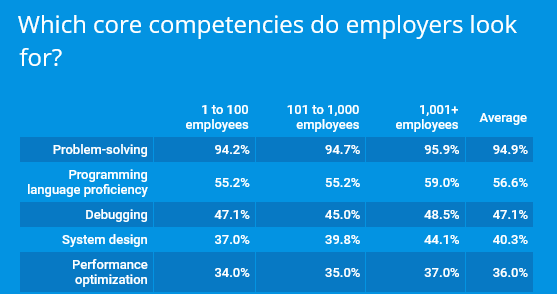
As you can see above, in the top five developers’ core competencies, problem-solving is almost universally crucial in organizations of any size.
When hiring software developers, look for those who enjoy complex problems and projects.
Critical thinking is vital for success in those circumstances; developers who possess that skill can be very valuable to the team.
Time management
How effectively a developer manages their time can tell you whether you can rely on them to do their job. That’s why it’s important to look for time management skills when hiring.
Keep in mind that a lack of time management skills in one developer affects the whole team; if one team member can’t meet deadlines and organize their time properly, everyone else has to wait or pick up their slack.
During a job interview, you can question a developer about how they manage time and tasks.
Below you can see the most common methods, according to research by the Development Academy.
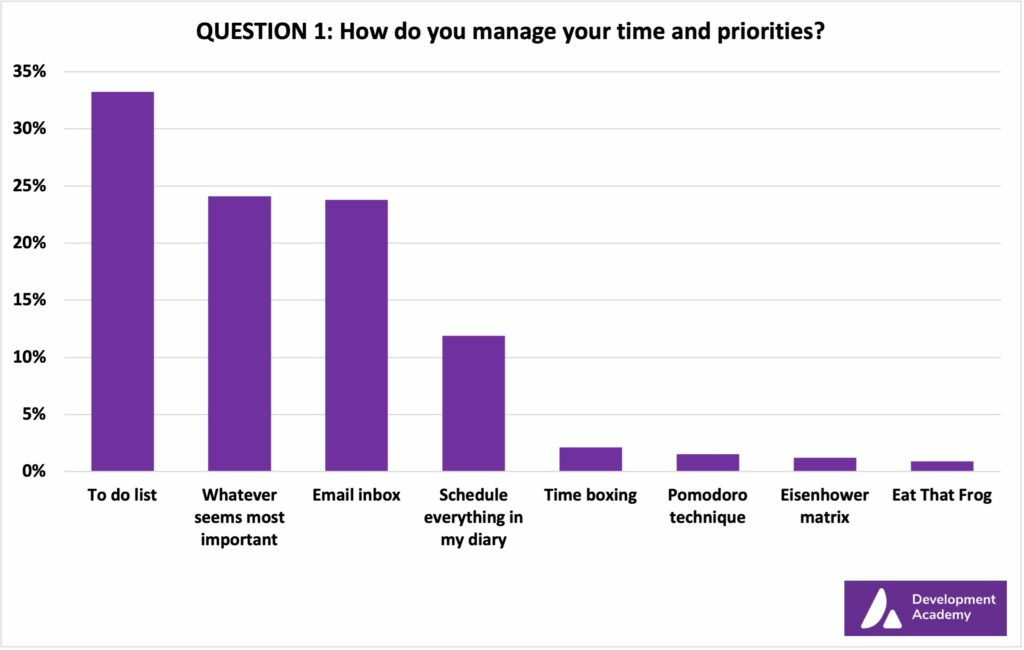
As you can see, among structured systems, a to-do list is the most common.
Notice that Whatever seems most important is in second place, which isn’t really a reliable time management method.
A promising sign can be if a developer uses one of the methods with the lowest percentage in the above graph, as they’re more complex but highly effective.
For example, the Eisenhower matrix is a tool for categorizing tasks in four areas:
- Urgent and important
- Urgent and not important
- Not urgent and important
- Not urgent and not important
Below, you can see which tasks would go in which category.
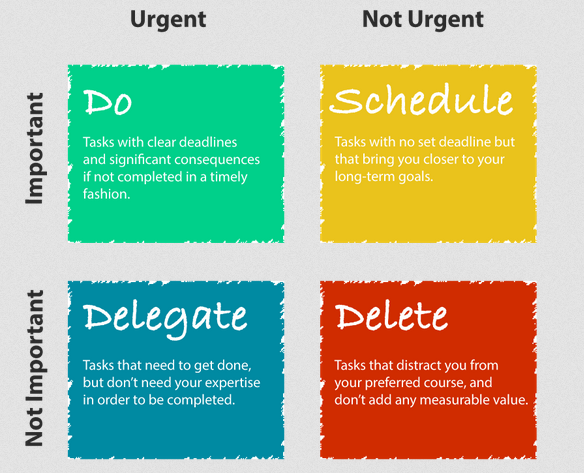
If a developer uses a method like that in their day-to-day work, their time-management skills are likely on point.
Using software tools can also be very helpful in time management, and developers who have that skill know how to utilize the advantages of technology.
One of those tools is Shake, our own solution. Shake is an app that can save time for developers dealing with bugs.
It automatically collects all the necessary data about bugs and sends it with a bug report.
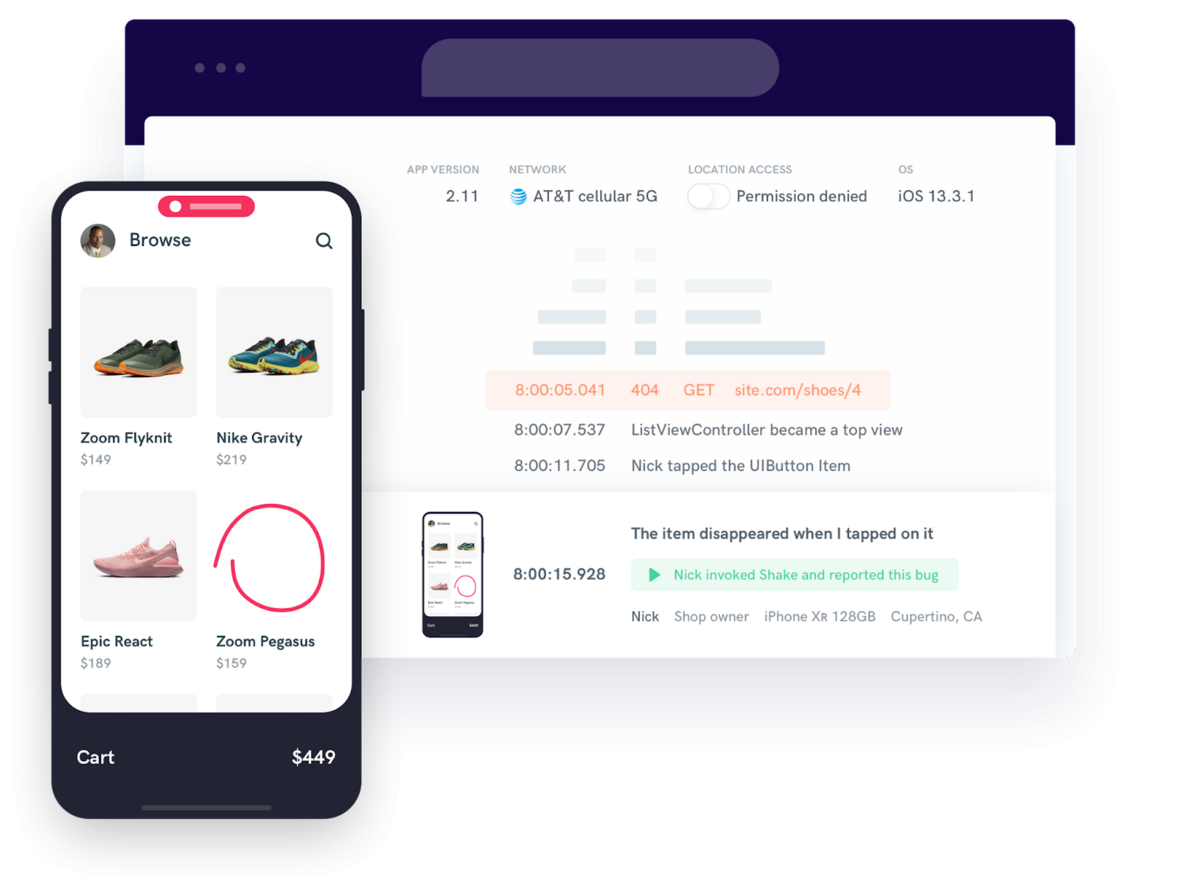
Shake collects over 50 pieces of data, like app version, device, permissions, etc.
In addition to the report, screenshot, or screen recording, that’s everything a developer needs to quickly and efficiently fix the issue.
Time management skills are crucial for a productive and reliable work process.
Looking for developers who have it mastered is a great method for building a strong software development team.
Conclusion
You shouldn’t underestimate the importance of your developers’ soft skills.
If there’s one lesson you should take away from this article, it’s that one.
You can have a genius developer who is proficient in every programming language imaginable, but they won’t be able to utilize their abilities without soft skills.
Having communication skills, the ability to collaborate and manage time, being emotionally intelligent, flexible, patient, and a critical thinker—those qualities comprise a winning formula of soft skills that you should look for in every opportunity.
